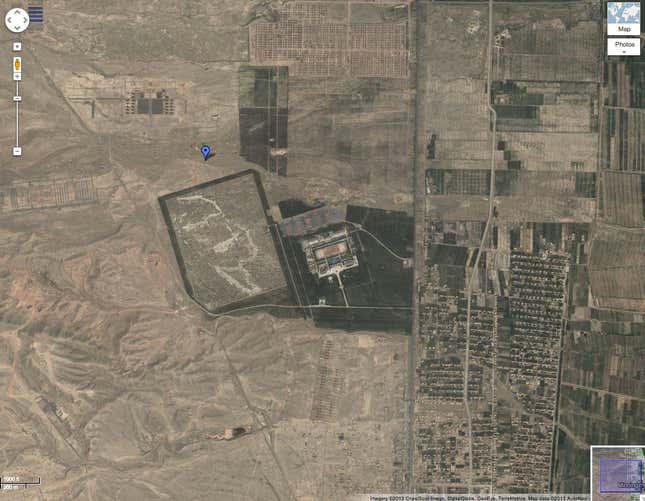
This post has been updated.
A Chinese provincial geographic bureau is investigating Coca-Cola for having illegally surveyed part of the province by using handheld GPS equipment. The charges are that the drink giant “illegally collected confidential information“ (link in Chinese) in Yunnan, a massive province in China’s southwest corner.
Coca-Cola says the equipment in question is used for logistics, and that the maps are “commercially available in China,” as the company told the Financial Times (paywall).
Update: A spokesperson for Coca-Cola tells Quartz: “Every day, our trucks deliver beverages to thousands of local retail outlets. Over the last several years, some of our local bottling plants in China have adopted logistics solutions to improve our customer service levels and fuel efficiency. These include e-map and location based customer logistics systems that are commercially available in China through authorized local suppliers. These customer logistics systems are broadly used for commercial application across many industries in China and worldwide. After being contacted by local authorities, our bottling plants have cooperated fully with their enquiries to ensure that our customer logistics systems are in full compliance with current regulations.”
Meanwhile, the Yunnan Geographical Information Bureau of Surveying and Mapping told the FT that the investigation was “a bit sensitive” and seemed surprised that media had published it.
What this all about?
Well, for one thing, China is insecure about its maps. And that’s probably because China is insecure about its borders. Monopolizing surveying rights is critical to reinforcing territorial claims, both symbolically—as in the 2007 “discovery” that Mount Qoomolangma, which you decadent Western capitalists might mistakenly know as “Mount Everest,” is 3.7 meters shorter than everyone else’s estimates—and in a stricter sense of punishing those who make maps that don’t show “China’s complete territory.”
And China enforces this monopoly by making geographic information one of its famous “state secrets.”
This means it’s “effectively illegal for foreigners to operate a GPS device in China,” as Mara Hvistendahl details in a recent Science article (paywall). And starting in 2007, the government started stepping up its efforts to enforce these laws. Perhaps the best-known case involved Xue Feng, a naturalized American citizen of Chinese birth, who is currently serving three years for violating state secrets while working for IHS Energy. But the Chinese authorities arrest foreigners every year for “illegal mapping.”
It’s not just foreign individuals—Google ran into trouble with online mapping, as well. And after Google refused to bow to Chinese government censorship policies in 2010, the State Bureau of Surveying and Mapping denied Google approval to provide online mapping services, reportedly along with Nokia and Microsoft, while 23 domestic companies received permission.
But who knows? Given that Coca-Cola’s relations with the Chinese government haven’t been fantastic of late, it’s always possible that there’s something beside the conscientiousness of Yunnan government mapmakers behind the charge. Last February, officials temporarily shut down (paywall) one of the company’s Shanxi bottling companies on accusations of chlorine contamination. Public alarm at the safety of China’s food supply has made foreign companies popular targets for contamination crackdowns. And though Coke said the chlorine amounts were but trace levels, the state-run press reported that Coke had admitted to the contamination and apologized.
Then in November, Coke was one of the companies brought up in stories about Comment, a crackerjack team of Chinese hackers. At issue was the hacking of a Coke executive’s laptop as the company made a $2.4-billion bid for Chinese juice-maker Huiyuan. The government unexpectedly blocked the investment on antitrust grounds, though some suspected the government saw the deal as a threat to Chinese brands that would stoke popular anger (in Chinese).
But oddly enough, Coca-Cola and the Yunnan government enjoy closer ties than you might expect. Which makes this map case all the more baffling—and, possibly, ominous for foreign companies that don’t happen to prefer their maps on paper and ink.



